2024 was a big year for gaming, and so naturally it was also a big year for gaming-related controversies. While hand-wringing over fears that “videogames cause violence” seems to have subsided, at least for now, political and culture wars nonsense is more pronounced than ever. The videogame industry itself, meanwhile, continued to suffer decimation as funding dried up and executives who overplayed their hands during the height of the Covid-19 pandemic slashed headcounts in the name of “sustainability.” There’s no other way to put it: It got ugly out there.
Of course, there were plenty of conventional fumbles too: Dissembling, dishonesty, and some straight-up bad calls provided plenty of “things that actually happened” for gamers to be unhappy about. From Facebook rejecting ads for board games to a weird cat game accused of being built with AI, here’s our roundup of the year’s biggest lowlights.
Facebook rejects ads for Votes for Women board game
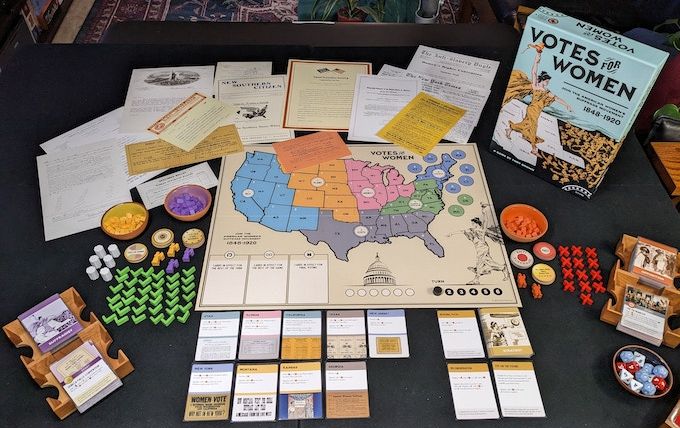
Our face: 😕
What happened: When board game publisher Fort Circle attempted to purchase Facebook ads for a new edition of Votes for Women, a board game about the women’s suffrage movement in the US, it received an unexpected surprise: Facebook said no. The problem, according to an automated response provided by Facebook to the publisher, is that the ad “mentions politicians or is about sensitive social issues that could influence public opinion, how people vote and may impact the outcome of an election or pending legislation.”
The outcome: You might think that such patent stupidity is the result of a bad algorithm making bad decisions, as they do, and you’d be correct. But when Fort Circle requested a review of the ruling, that too was rejected. Not being able to run ads had a material impact on the Votes for Women crowdfunding campaign—”Most Kickstarter creators will tell you that Facebook advertising is a crucial piece of the crowdfunding puzzle,” Fort Circle founder Kevin Bertram said at the time—but more broadly it points to a pretty serious failure in Facebook’s review process.
Sweet Baby Inc sparks anti-woke outrage

Our face: 😡
What happened: In March, a little-known company called Sweet Baby Inc was suddenly thrust into the spotlight by “anti-woke” gamers outraged by, as one put it, the narrative consultants’ promulgation of “ideological worldviews that I believe have taken hold of the Western world, media, and gaming as a whole.” Which is of course nonsense: The company is contracted by developers who want to improve pre-existing elements of their games, and it has absolutely no power to force anyone to do anything—least of all make wholesale changes to their projects to enforce some sort of imagined “race and identity group quota.”
The outcome: As ridiculous as it sounds (and is), the furor was (and is) real. A Steam curator group dedicated to “detecting” the presence of Sweet Baby Inc in games has now swollen to more than 460,000 followers, and the company was forced to lock its social media accounts following a torrent of abuse.
Fallout fans think Bethesda is trying to retcon New Vegas out of existence
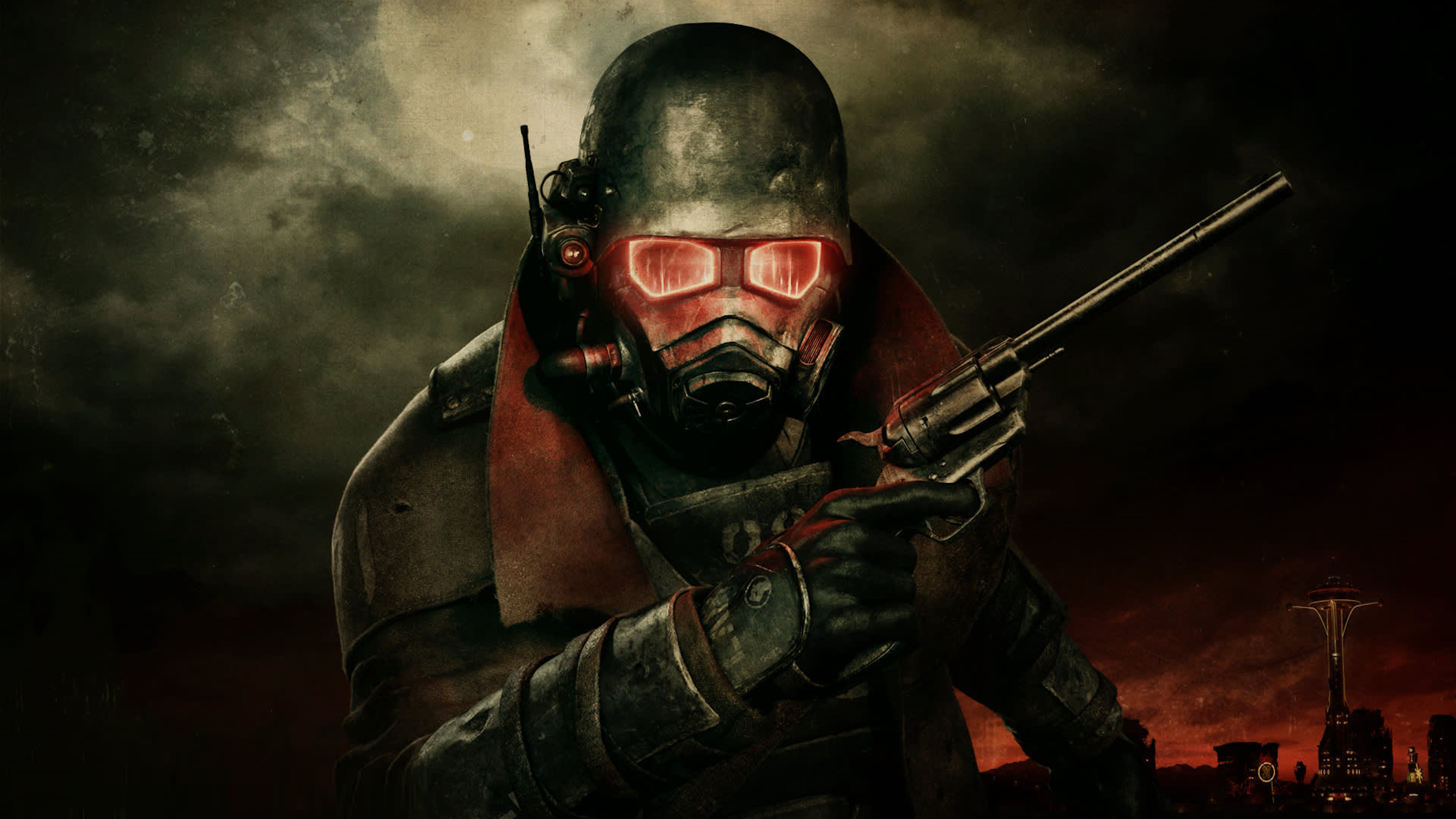
Our face: 🤨
What happened: The Fallout TV show on Amazon was a hit, but it made some Fallout die-hards angry because of a perceived lack of faith to the lore. PC Gamer’s Chris Livingston broke the whole thing down in detail, but the short version is that aggrieved fans believed Bethesda was using the Amazon show to erase Fallout: New Vegas—a fan-favorite in the series that was notably not developed by Bethesda, but by Obsidian—from the timeline.
The outcome: Reactions to the conspiracy theory varied: Showrunner Graham Wagner said the wasteland isn’t static and sometimes things happen, New Vegas lead designer Josh Sawyer understands the annoyance but really doesn’t give a shit, and Todd Howard, the man currently atop the Fallout creative mountain, expressed mild exasperation about the whole thing, promising that “New Vegas is a very, very important game” to Bethesda. Bottom line? Everyone needs to simmer down.
Escape from Tarkov infuriates players with a spectacularly botched PvE mode launch
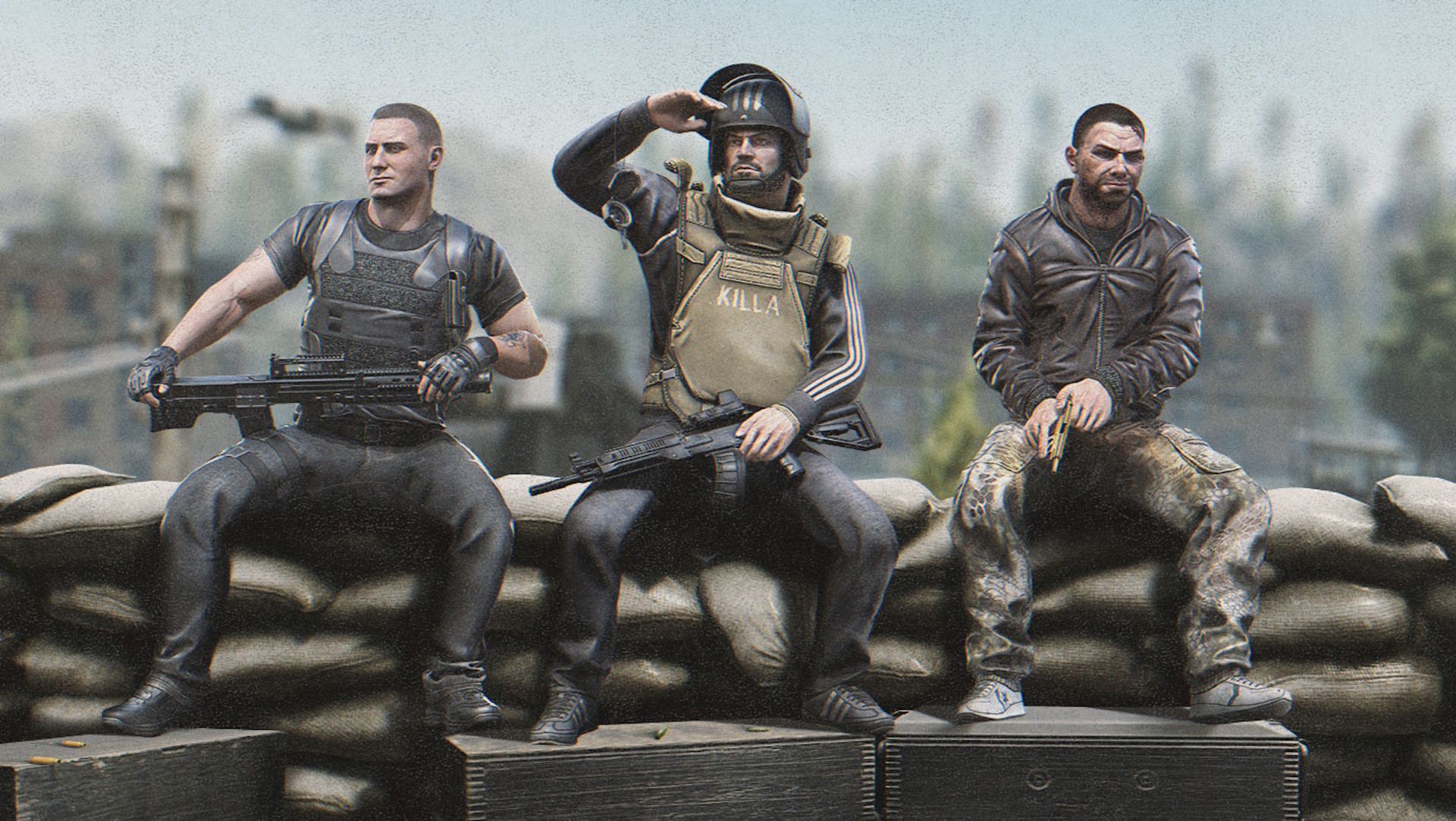
Our face: 🤔
What happened: Battlestate Games shot itself in the foot real good in April with the release of a $250 Unheard Edition of the game that included, among other things, access to co-op PvE—a mode that owners of other editions would have to pay to play. What really stuck in the community’s craw, though, was a previously-released $150 Edge of Darkness edition that promised “free access to all subsequent DLCs,” but that did not offer access to the new mode. Battlestate argued that the PvE mode was not DLC but a “unique feature of the new game,” and thus didn’t count.
That went over about as well as you’d expect—extremely not well, to be clear—and Battlestate made the situation worse by dicking around with half-baked sops. It eventually offered six months of co-op play for free, but not until some future date because the servers don’t have the capacity to handle everyone; on top of that, people who bought the $250 edition were promised priority matchmaking, meaning everyone else would be stuck in longer queues. They were also given access to in-game items protecting them from scavs and enabling more and better gear to be carried, conferring a distinct advantage over others, including those who bought the previously-prized $150 version.
The outcome: As PC Gamer’s Jake Tucker said, Battlestate “wiped out years of goodwill in one catastrophic week,” but somehow it wasn’t quite finished stepping on the Lego’s it’d dumped on the floor. After initially offering owners of the Edge of Darkness edition of Escape from Tarkov an option to upgrade to the newer release for $100 (what a deal), Battlestate reduced the upgrade price to $50; players who had already forked over $100 for the upgrade were offered $50 in “compensation,” in the form of a single-use Escape from Tarkov voucher.
Fallout 4’s next-gen patch breaks everything, improves nothing
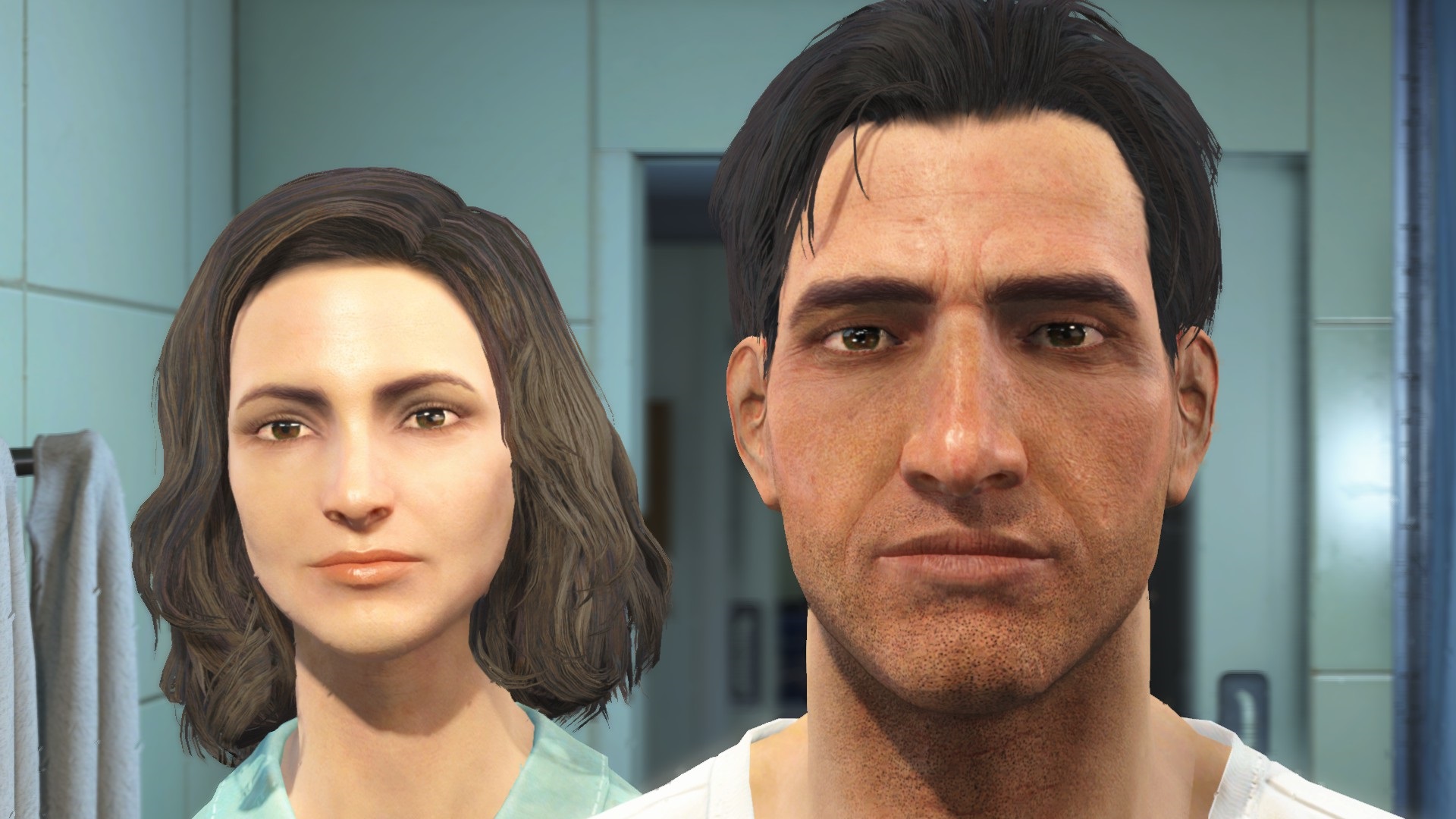
Our face: 😣
What happened: Not content to sit quietly on the sidelines and watch Battlestate blow years of goodwill to smithereens with unforced errors, Bethesda said “hold my beer” and rolled out a “next-gen” patch for Fallout 4 that PC Gamer’s Ted Litchfield described as nothing short of “calamitous.” It wasn’t just that the update changed so little, it actually made things worse: The added ultrawide support borked the UI, modded saves wouldn’t load, and frame rate was still capped at 60. Adding insult to injury, the update rolled out on the heels of the hit Fallout TV show on Amazon, which had sparked a whole new wave of interest in and excitement for the game series, and the mod team behind Fallout London had to delay the total conversion’s release to be sure it’d be compatible with the new version.
The outcome: An update to the update rolled out a few weeks later, correcting a few issues but leaving the biggest problems for modders to fix. Many of them recommended the simplest fix of all: Use the Fallout 4 Downgrader tool to revert the game to a pre-“next gen” state and be happy with a game that works like it’s supposed to. For the record, Fallout 4’s next-gen patch hasn’t been updated since.
Take-Two closes Intercept Games and Roll7, claims it didn’t, but yeah, it did (and Kerbal 2 looks DOA)

Our face: 😵
What happened: The Kerbal Space Program 2 controversy actually kicked off in early 2023 with a catastrophic early access launch, but it took a weird, drawn-out twist in 2024. In May, it was reported that KSP2 developer Intercept Games, along with Rollerdrome studio Roll7, were being closed as part of sweeping layoffs at parent company Take-Two Interactive. But shortly after that report, the Kerbal Space Program X account piped up, saying, “We’re still hard at work on KSP2. We’ll talk more when we can.”
Take-Two CEO Strauss Zelnick threw more confusion on the fire a couple weeks later, saying the closure report wasn’t true: “We didn’t shutter those studios, to be clear.” Zelnick insisted he wasn’t trying to be “cute or difficult” about the situation, but yeah, he was being kind of cute and difficult. Not too long after that, Intercept employees confirmed that large numbers of people at the studio, and possibly the entire team, was being laid off.
The outcome: In November, Take-Two sold its Private Division publishing label to an unnamed buyer, and at the same time finally confirmed that Intercept and Roll7 had in fact been closed at some point prior to the sale. Take-Two still hasn’t explained what happened between ‘we haven’t closed the studio’ and ‘the studio is closed.’
As for Kerbal Space Program 2, it appears to be cooked: The KSP X account hasn’t posted since the “still hard at work” promise in May, and the most recent game update—a relatively small bug-fix patch—went live in June. The game currently has a “mostly negative” overall user rating on Steam, and a concurrent player count that hovers around 100.
Sony goes to war over Helldivers 2’s PSN requirement

Our face: 😐
What happened: Arrowhead’s fascism-is-fun shooter Helldivers 2 was on a monster roll following its launch in February, but ran face-first into a concrete wall in May when Sony, the game’s publisher, announced that players on Steam would be required to have a PlayStation Network account if they wanted to keep playing. That was the plan from the start, but the requirement was initially put on hold because of server issues when the game first went live.
That didn’t mollify players, who came hard with the time-honored tradition of a review-bombing: More than 220,000 negative reviews flooded into Steam, dragging Helldivers 2’s “overwhelmingly positive” rating to “mixed.” Sony stood its ground briefly but eventually backed down, leaving Arrowhead to clean up the mess.
The outcome: An influx of positive reviews followed in the wake of Operation Cleanup, but like grassy fields in France that remain pockmarked with shell craters, evidence of the battle remains in the game’s “mostly positive” rating on Steam: Good, but nowhere near what it used to be. And despite the debacle, Sony isn’t giving up on the PSN account requirement on PC: President Hiroki Totoki said in November that linked accounts are necessary so people can “safely” play its games.
Tekken 8 pro loses World Cup qualifier after his wireless controller goes haywire
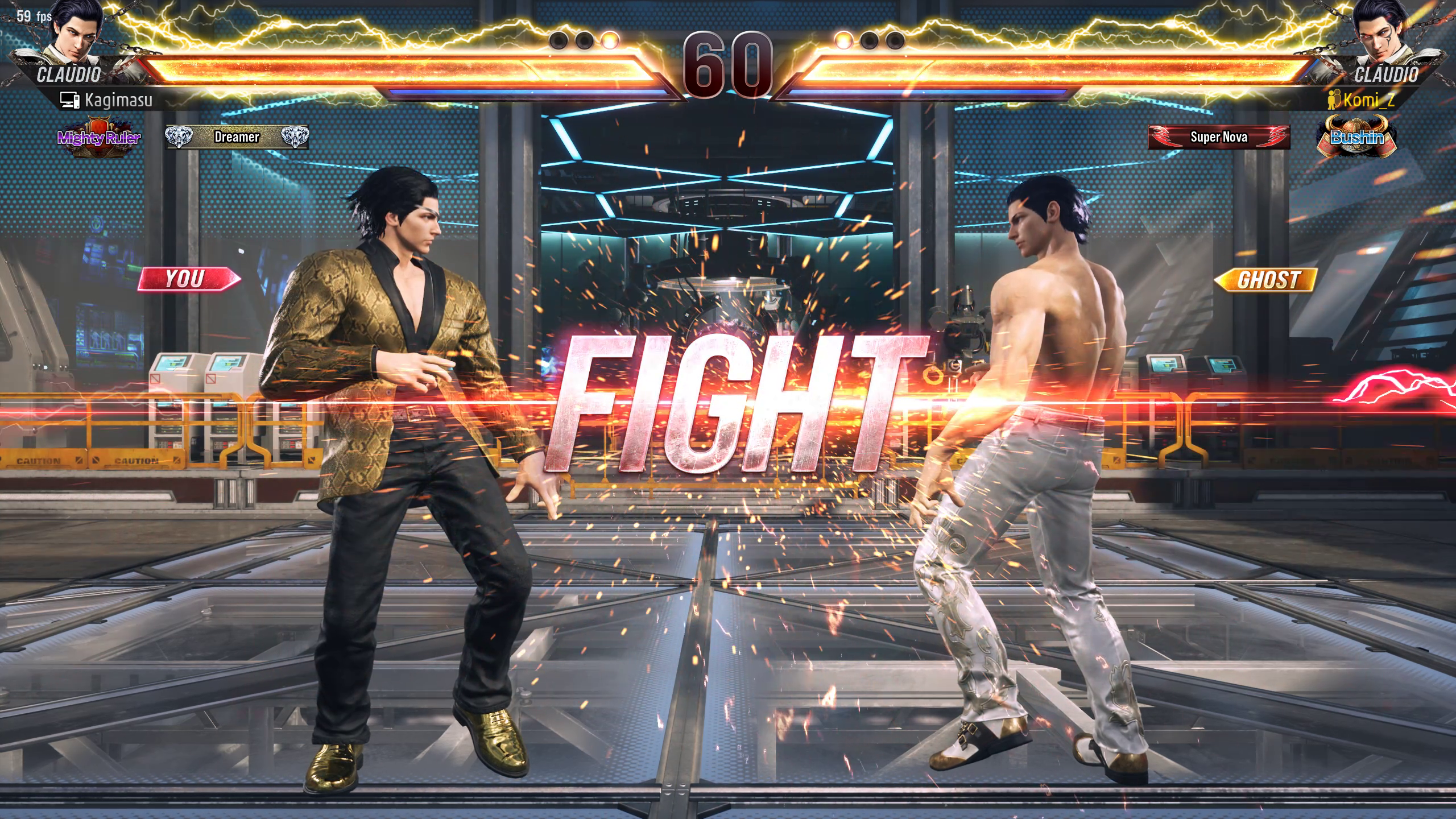
Our face: 😬
What happened: Things went sideways in a hurry for Tekken pro Kim “JDCR” Hyun-jin, who was about to claim victory against opponent Alexandra “AK” Laverez at Dreamhack Dallas when his controller crapped out, eventually determined to be the result of someone who was previously connected to the setup turning their controller on. That forced a redo of the match, and that didn’t go over well: As PC Gamer’s resident fighting game pro Mollie Taylor recounted, “Twitch chat can be seen saying things like ‘JDCR won that fair and square,’ ‘JDCR ALREADY WON,’ ‘JDCR got screwed,’ and ‘Jdcr won. This is rigged’.”
When the do-over match eventually went ahead, AK—who was undoubtedly going to lose prior to the technical trouble—came out on top, and the reaction was predictable. AK received “a heaping of rather undue hate,” Taylor wrote: Some said he should have forfeited the match, others went so far as to claim that he’d intentionally sabotaged JDCR’s controller connection in order to avoid a loss.
The outcome: JDCR ultimately finished ninth in the tournament, just missing out on a top-eight finish that would have earned him a qualifying position at the Esports World Cup. DreamHack founder Alex Jebailey said on Twitter that he felt “incredibly sorry for what happened” and that he’d help JDCR attend future qualifiers for another World Cup shot. But, he added, “the amount of death threats and crazy things being said to me are pretty horrendous.”
Starfield gives us Horse Armor in space
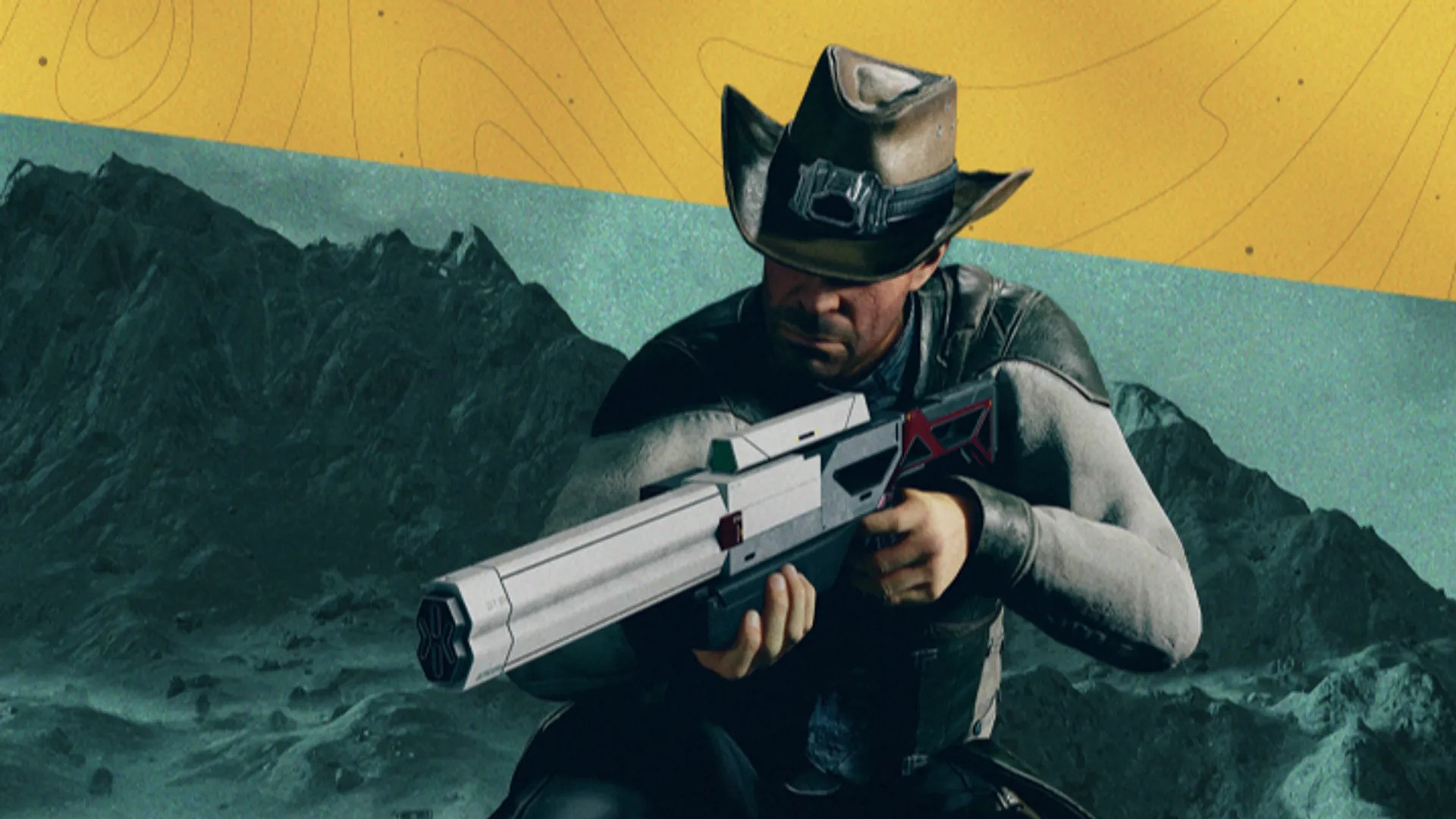
Our face: 🤠
What happened: Starfield was a perfectly fine Bethesda RPG, but didn’t quite live up to the pre-release hype. The mood among players soured further as months went by with minimal support, and the launch of the Starfield Creation Kit in June did not improve things.
The big problem was the release of a single Trackers Alliance mission called The Vulture that cost $7, which thanks to the magic of Starfield Creation Credits bundle pricing was in reality $10. Unhappy players likened the DLC to Oblivion’s infamous Horse Armor, the 2006 add-on that heralded the era of cosmetic microtransactions.
The outcome: Horse Armor won in 2006, and despite the widespread early upset it looks like The Vulture did too: In response to the backlash, Todd Howard said “we hear the feedback” (ie., a small review bombing campaign on Steam) but Bethesda hasn’t budget on the price, and it remains among the most popular of more than 2,700 Starfield creations.
Ubisoft grapples with Assassin’s Creed Shadows blowback
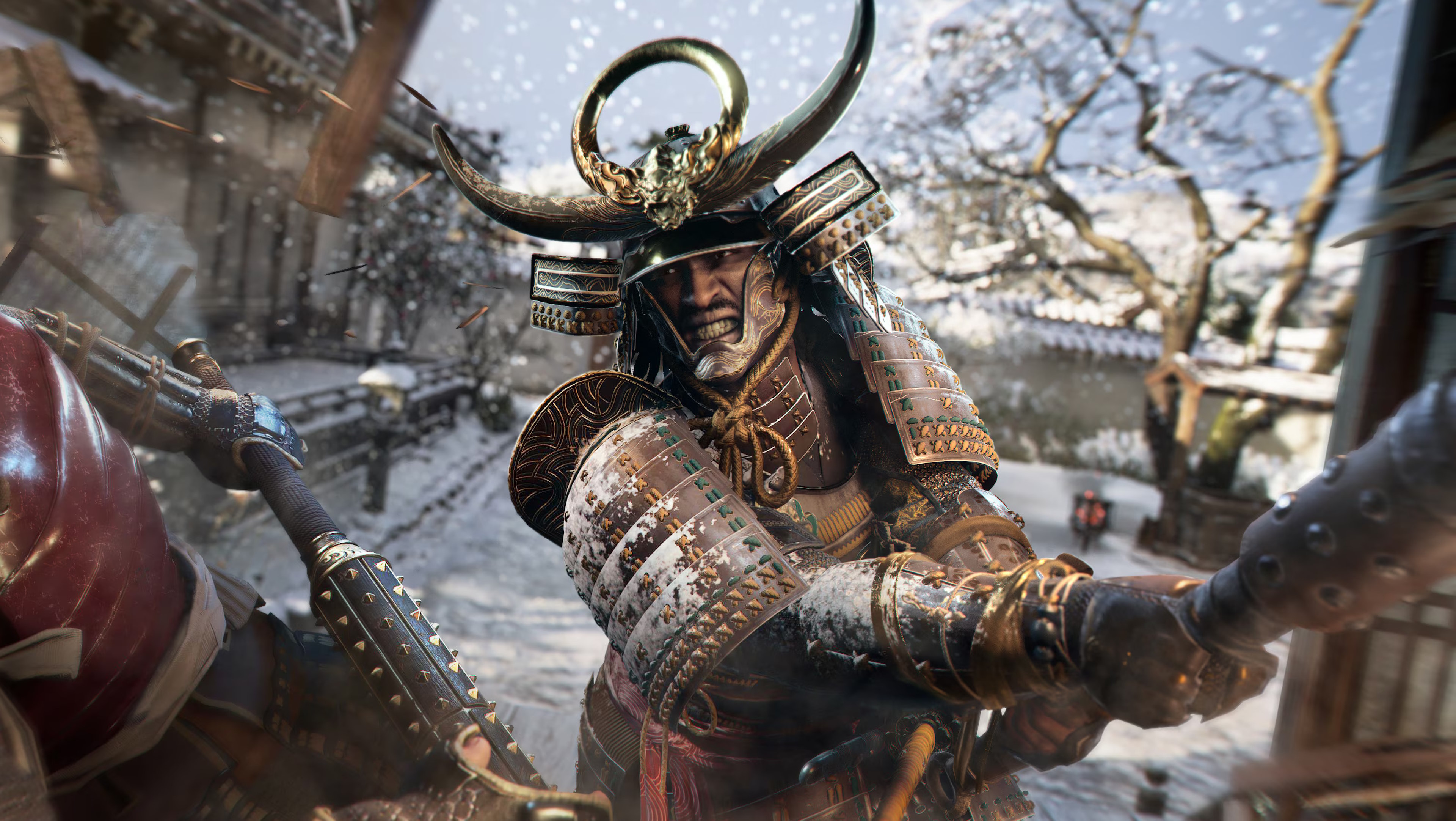
Our face: 🤬
What happened: Assassin’s Creed Shadows has been a nexus of anti-woke gamer upset since revealing Yasuke, one of its two protagonists. Yasuke is a real-life historical figure who lived in Japan in the 16th century and eventually became an attendant of Oda Nobunaga. He’s an ideal fit for an Assassin’s Creed character, but he’s also Black, and that caused great distress among certain corners of the gaming world, who very suddenly discovered a new commitment to historical authenticity (it’s widely believed Yasuke served as a samurai, but not known for certain) and felt that featuring him instead of a “real” Japanese samurai was disrespectful to Japan. X owner Elon Musk amplified that sentiment in May, replying to a complaint about the game posted on his platform that “DEI kills art.” Ubisoft‘s ham-fisted efforts to address what it apparently imagined were good-faith concerns about the game, meanwhile, only made the whole situation worse. It got to the point where even Reddit was sick of dealing with it.
Other, more self-inflicted problems cropped up over the second half of the year. In July, Ubisoft apologized for using a real-life reenactment group’s flag in Assassin’s Creed Shadows concept art without permission, and in October the maker of a collectible said it would be redesigned following complaints that it bore a striking resemblance to the one-legged torii standing outside the Sannō Shrine, a remnant of the 1945 nuclear attack on the city of Nagasaki. Frankly, though, I don’t think either issue would have attracted nearly as much attention had the anger pump not already been primed by the inclusion of Yasuke.
The outcome: Assassin’s Creed Shadows was delayed in September to February 14, 2025, so we’re still waiting to see how that works out, but it’s been interesting watching Ubisoft grapple with the blowback. There seems to be confusion, or perhaps conflict, on how best to approach it: Executive producer Marc-Alexis Côté said in June that Musk was “feeding hatred,” but in September, after announcing the delay, Ubisoft CEO Yves Guillemot took pains to reassure everyone that “our goal is not to push any specific agenda” with games.
But Coté is having none of that, saying more forcefully in November that some of Assassin’s Creed Shadows’ loudest critics post “lies, half truths and personal attacks online,” and that “when we self-censor in the face of threats, we hand over our power, piece by piece, until freedom and creativity both wither away.”
Dr Disrespect finally confirms the reason for his lifetime ban from Twitch

Our face: 🤢
What happened: Guy Beahm, better known online as the streamer Dr Disrespect, was banned from Twitch for life in 2020. But the reason for his ouster remained a secret until June 2024, when a former Twitch employee alleged that Beahm was shown the door because he was caught “sexting a minor” through Twitch’s Whispers messaging system.
A few days later, Beahm acknowledged exchanging messages with a minor in 2017 “that sometimes leaned too much in the direction of being inappropriate,” but insisted that “nothing illegal happened” and that he never faced criminal charges as a result of his actions.
The outcome: The fallout was immediate and severe. Beahm was fired by Midnight Society, the game studio he co-founded in 2021, when the allegations first came to light; shortly after his public admission, 2K Games, Turtle Beach, the NFL, and YouTube also cut ties with the streamer.
Bungie lays off hundreds of employees as its CEO spends millions on cars
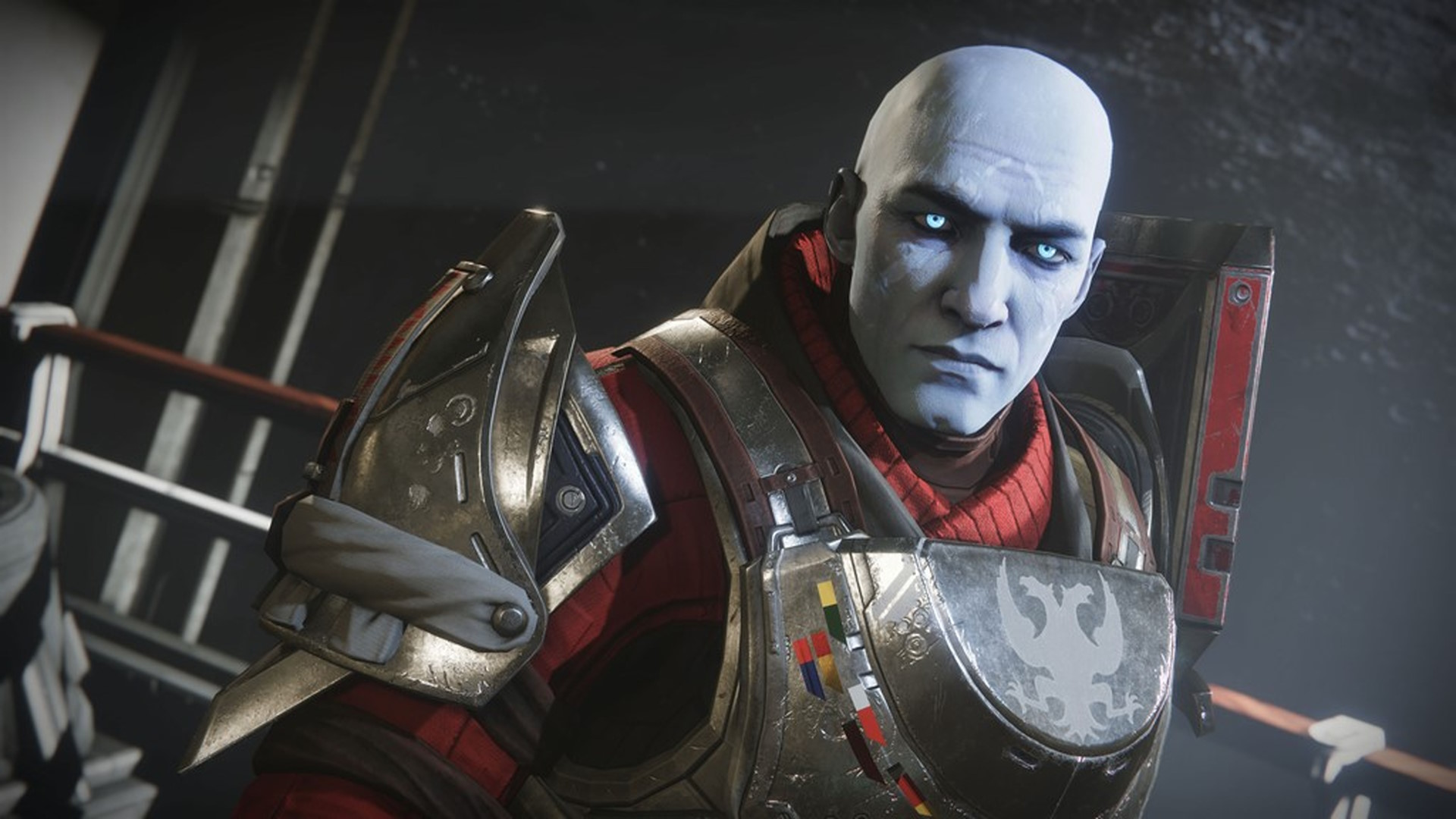
Our face: 😧
What happened: Destiny 2 studio Bungie laid off 220 employees in July, less than a year after an October 2023 layoff that saw a number of long-time and high-profile staffers put out of work. What really pissed people off, though, were claims that Bungie CEO Pete Parsons had spent more than $2.4 million on vintage cars over the two years leading up to the layoffs. Parson’s money to spend, yes, and not a huge amount of it compared to the cash Destiny 2 has hoovered in over the years, but as PC Gamer’s Harvey Randall put it, “Isn’t it weird that he has so much of it while his now-former employees face anxiety over their basic living expenses?” Some former Bungie employees sure thought so.
The reaction to Parsons’ vehicular habits was no doubt amplified to some extent by his public performance in the wake of those October 2023 layoffs, in which he did his best to present himself as an innocent bystander rather than a well-paid, still-employed studio chief. As one person said in response to Parsons’ post about those layoffs on X, “Your senior social lead probably would have recommended against this post, which you would have known had you not let them go.”
The outcome: Destiny 2 is still grinding along, but the road ahead hasn’t gotten any smoother. In October, Sony carved off more of Bungie, making its Creative Studios arm a part of PlayStation Studios, and in December former Destiny 2 and Marathon director Christopher Barrett, who was fired in April over allegations of inappropriate behavior with female employees, sued the company for $200 million, saying Bungie “deliberately destroyed [his] reputation by falsely, and publicly, insinuating they had ‘investigated’ Barrett and ‘found’ he had engaged in sexual misconduct.”
Russian chess player tries to poison rival with mercury

Our face: 😮
What happened: Amina Abakarova, a 40 year-old chess player from the Russian Republic of Dagestan, was scheduled to play Umayganat Osmanova, a 30 year-old longtime rival who had beaten Abakarova into second place in a tournament the week prior. Not wanting to risk a second consecutive L, Abakarova decided to up her game by smearing liquid mercury all over the chess board and pieces they were meant to use.
Mercury is of course very poisonous, and Osmanova began complaining that she was unwell, nauseous and dizzy around half an hour after the game began. Doctors were called in, and were fortunately able to prevent her from succumbing to the poison.
The outcome: Abakarova might be a really good chess player, but she’s not much of a criminal mastermind. She applied the poison in full view of security cameras, and was thus quickly busted by police. She reportedly copped to the whole thing, not because she wanted to win the match but just because she really doesn’t like Osmanova, and now she’s facing up to three years in prison and a lifetime ban from competitive chess play.
It may not seem like a world-shattering controversy from our videogame-centric perspective, but it was a very big deal in the world of chess: Malcolm Pein of the English Chess Federation said he’d “never seen anything like this before,” adding that it was “the first recorded case of somebody using a toxic substance, to my knowledge, in the history of the game of chess.”
Black Myth Wukong studio steadfastly refuses to address allegations of sexism
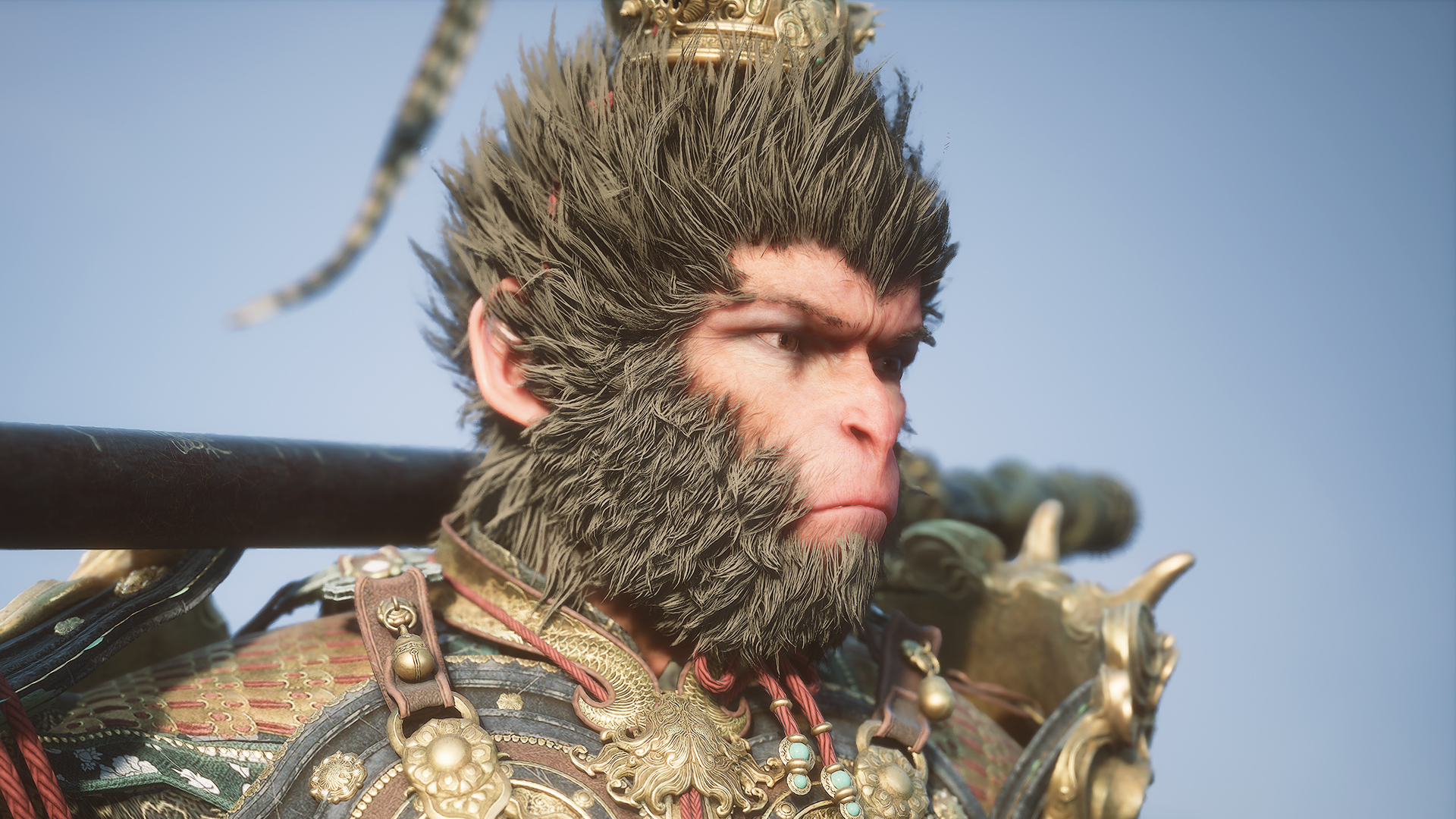
Our face: 😒
What happened: Black Myth: Wukong is a good game and a major success, but it’s also become a pivot point in the culture wars thanks to a 2023 IGN report on the long history of sexism at developer Game Science. The issue was put back under the spotlight in August 2024 when the studio sent out streaming guidelines just ahead of Black Myth: Wukong’s release forbidding, among other things, “feminist propaganda” during streams.
Naturally, the usual parts of the Twittersphere were thrilled to see a developer being so “based,” especially since Black Myth: Wukong was a hit, proof positive that ‘real gamers’ don’t want politics in their videogames, or somesuch. Others viewed the whole thing more as just strange and a little creepy.
The outcome: Game Science has steadfastly refused to even acknowledge the issue: On multiple occasions, both before and after the streamer guidelines came to light, the studio has kept its head down and refused to comment on the controversy. Which may be a comment in itself: As PC Gamer’s Wes Fenlon wrote, “It’s hard not to read the silence as a sign that Game Science feels it has nothing to apologize for.”
Mr Beast lawyers up
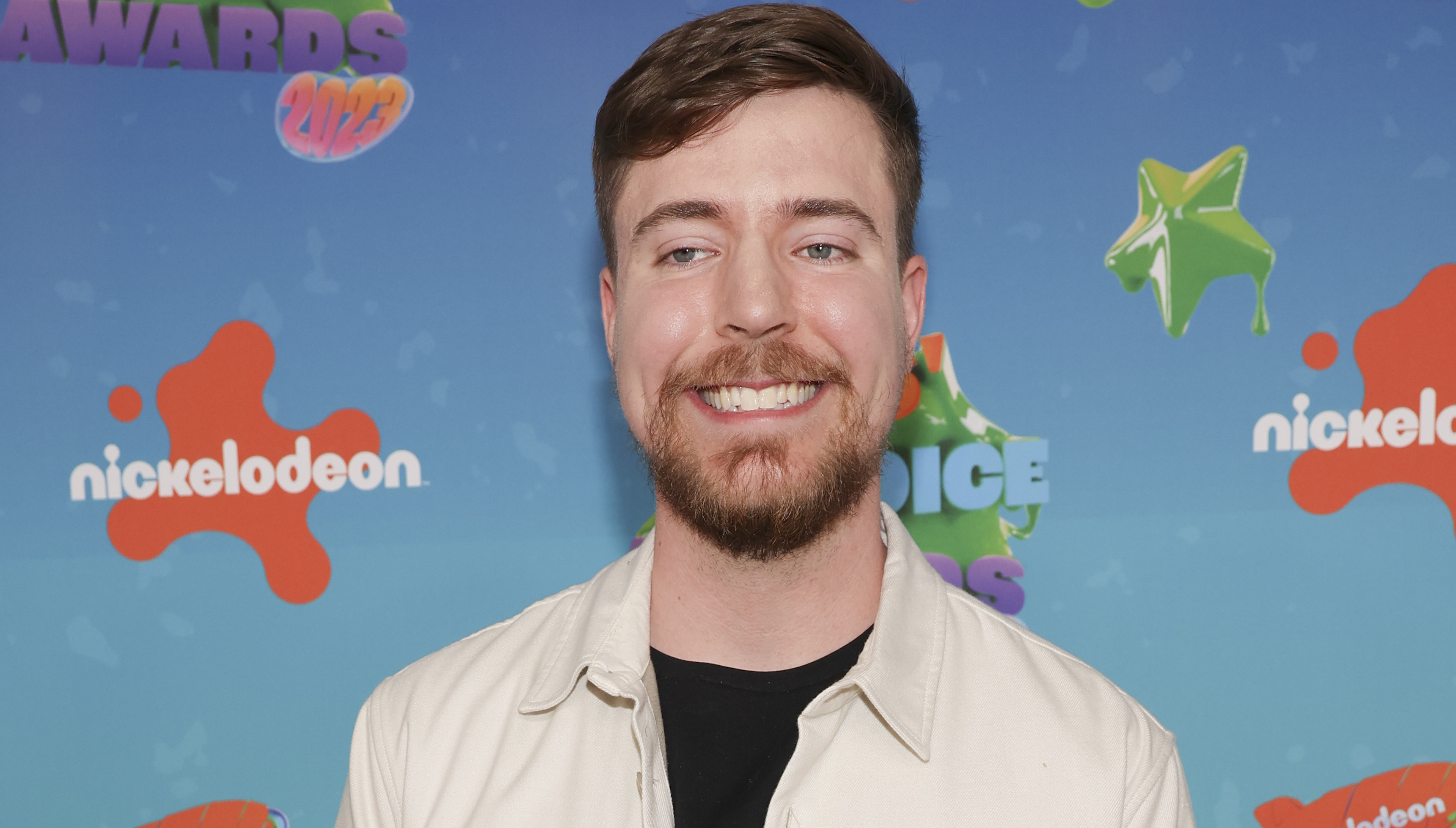
Our face: 😶
What happened: Mega-YouTuber Jimmy “MrBeast” Donaldson had a good first-half in 2024, with his main account becoming the most-subscribed channel on the platform in June, but a very bad second half, as his media empire became embroiled in multiple scandals. Longtime collaborator Ava Kris Tyson was accused of grooming a 14-year-old fan after an exchange of inappropriate messages came to light, and while Donaldson quickly cut ties with Tyson, more trouble followed. Contestants in his Beast Games competition, a real-life Squid Games knockoff, complained of poor treatment, and former employees came forward to say some elements of his videos were either faked or rigged—and that they’d been mistreated themselves.
The outcome: Rather than issuing the standard mea culpa that so often comes in the wake of this sort of thing, Donaldson is trying to power through it, keeping his head down, his mouth shut, and the videos rolling. So far it seems to be working: His subscriber numbers continue to climb, and his videos are still attracting hundreds of millions of viewers.
Peter Molyneux says he’s “coming home” to PC

Our face: 🙄
What happened: Legendary game designer and bullshitter extraordinaire Peter Molyneux said in August that he’s “coming home” to PC, which would’ve been exciting news in, say, 2006. But in 2024, the bloom is off the rose thanks to a long series of catastrophes including Curiosity, Godus and the follow-up Godus Wars, and Legacy, a blockchain-based business sim that raised a huge pile of money in pre-release land sales (although apparently not quite the $54 million claimed by some reports) and then immediately tanked.
Which isn’t to say Molyneux’s new thing, the god game Masters of Albion, will necessarily be bad. If anything, it actually shows some real promise: Superficially, it looks a bit like Populous mashed up with Fable, and if Molyneux’s 22cans studio can pull it off, that definitely might not suck.
The outcome: Impossible to say at this point because nothing else has happened, but memories of the last decade-plus will not be forgotten, and that puts the whole thing in a deep hole right from the start. I hope he’s able to climb out of it and clock us all in the head with one final, great triumph, but the days of granting Molyneux the benefit of the doubt are long over.
Sony pulls the plug on Concord less than two weeks after launch, and a lot of people are strangely happy about it
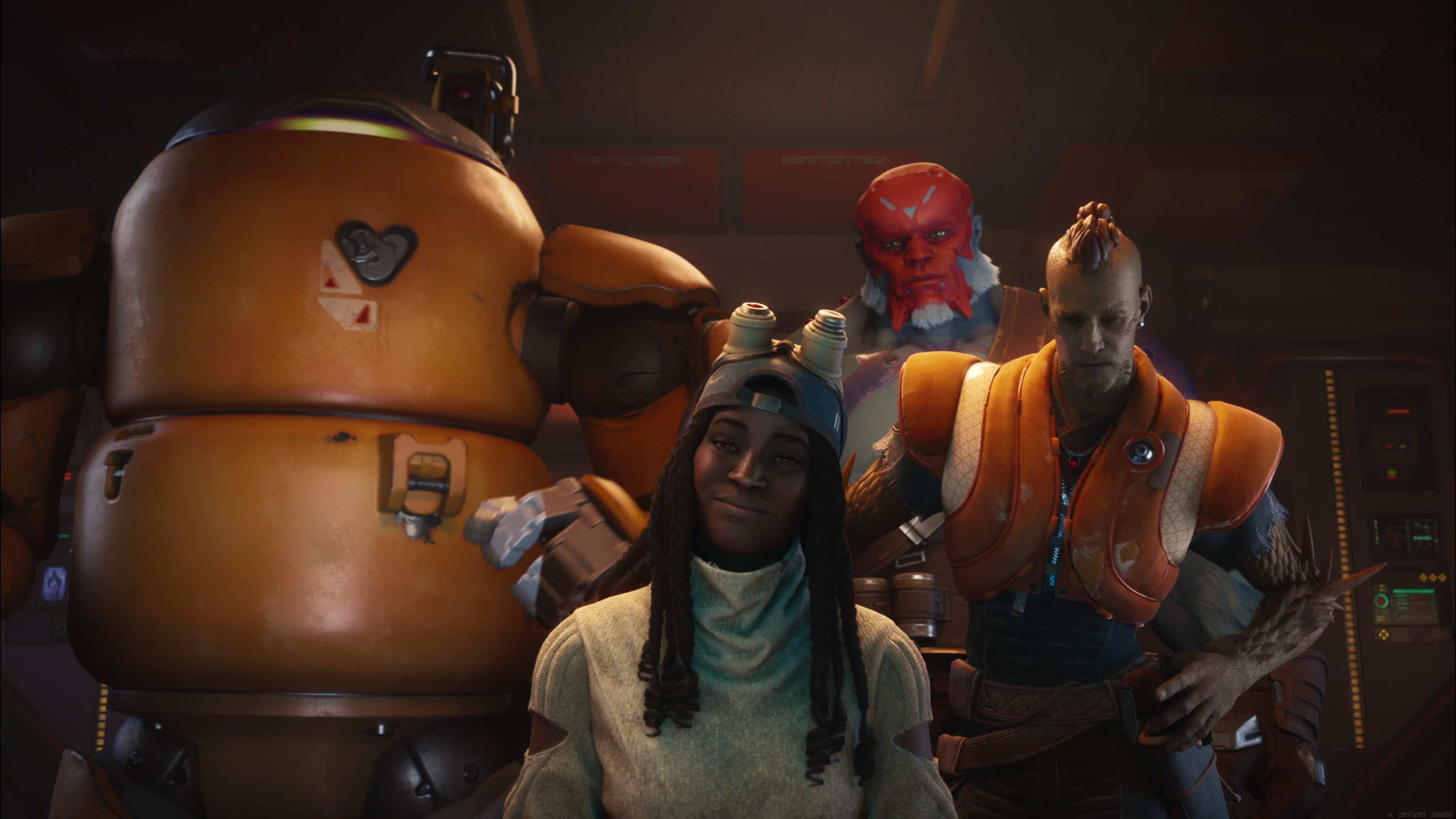
Our face: 😢
What happened: The online shooter Concord was one of the biggest, most spectacular flameouts in videogame history: After sinking vast amounts of money into the project, including the outright purchase of developer Firewalk Studios in 2023, mixed user reviews and abysmally low player counts sealed its doom immediately. Some hoped Concord might get a second shot at life as a free-to-play game, but Sony shot down that proposition in October: Concord, like the proverbial parrot, is dead.
The outcome: It was an ugly mess by any measure, but what was particularly notable in the wake of Concord’s failure was the glee it prompted from some corners of the gaming world: Gloating, memes, and shared screenshots of the game’s concurrent player count on Steam dominated the post-closure discourse. PC Gamer’s Tyler Wilde said “the eagerness to grave dance on unpopular games has become a bad habit,” and he’s absolutely right. Concord was at best a perfectly fine shooter trying to break into a crowded genre where “perfectly fine” isn’t nearly good enough, and there’s plenty of space for analysis and discussion of how it all went so completely wrong. But cheering its loss—and the subsequent closure of Firewalk—does no one any good.
Dr Disrespect begins his comeback tour

Our face: 🤢🤢🤢
What happened: The Dr Disrespect comeback tour began in September with a 20-minute rant on his YouTube channel, in which he said his Twitch suspension was primarily the result of a conspiracy against him. But it didn’t really kick into gear until October, when YouTube declined to remonetize his channel. In response, the streamer teased “something much, much bigger” in the works, which in November turned out to be a move to Rumble, the right-wing streaming platform that hosts the likes of Dan Bongino, Steven Crowder, Viva Frei, Russell Brand, The Quartering, and the Tate Brothers.
The outcome: Well, Dr Disrespect is on Rumble now. The numbers aren’t nearly the same at this point—he’s currently at a little over 76,000 followers on Rumble, a small fraction of the 4.55 million he’d amassed on YouTube—but he’s not just streaming there: His deal with the platform includes equity in the company, and he will also lead Rumble Gaming, its videogame-focused livestream category. Lest there be any doubt about his commitment to the cause, the move came a month after he announced a line of “Make Gaming Great Again” merchandise modeled after the campaign slogan of US president-elect Donald Trump.
Twitch bans Arab streamers as it struggles (and fails) to come up with coherent moderation policies
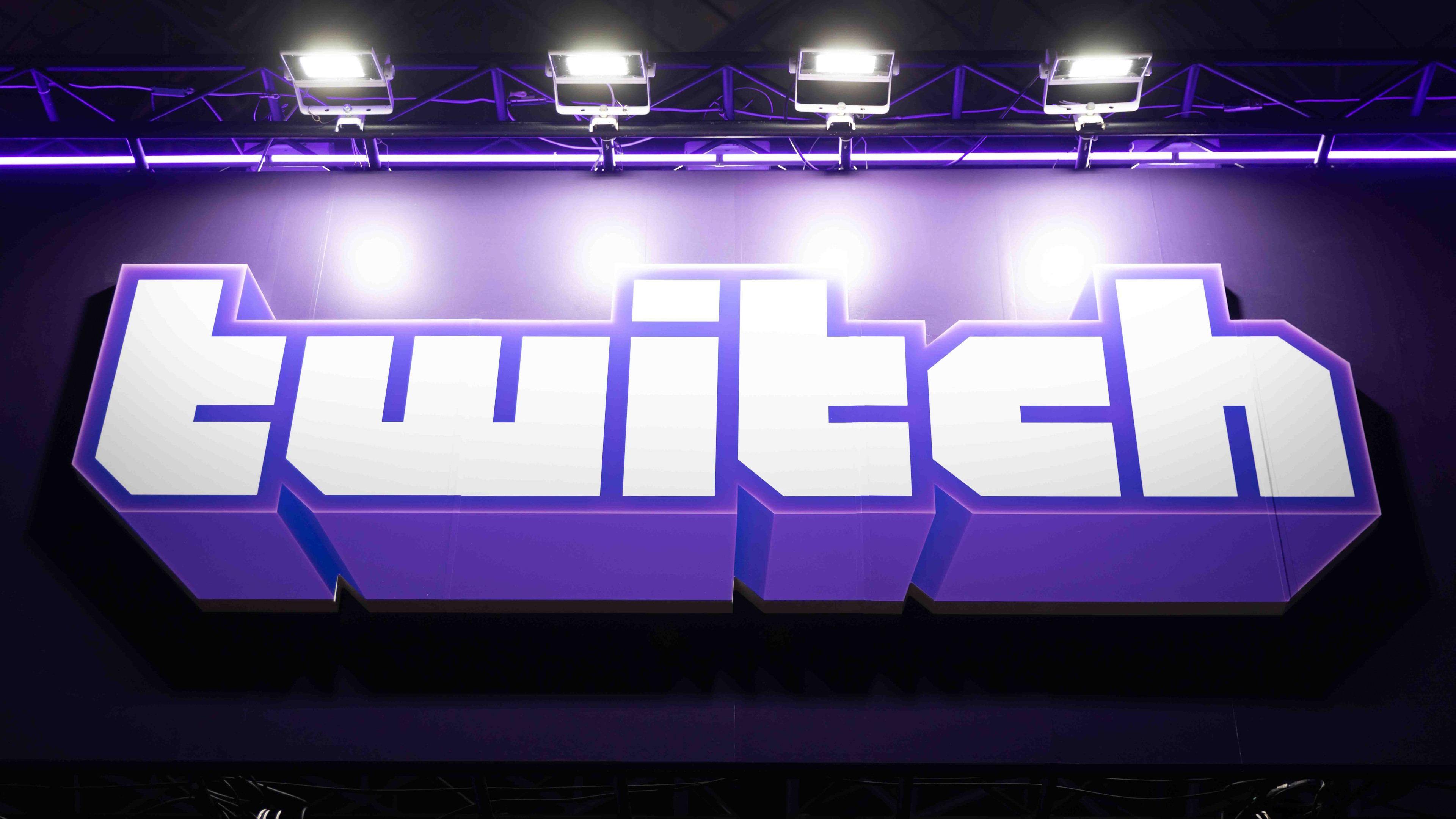
Our face: 😠
What happened: Under pressure from the Anti-Defamation League, a major American non-profit that campaigns against antisemitism and promotes Zionism as a movement for “self-determination and statehood for the Jewish people in their ancestral homeland,” Twitch banned several Arab streamers in October over a TwitchCon panel that had occurred a month earlier. Panelists had put together a tier list ranking various streamers from “Arab” to “loves Sabra”, an American and Israeli-owned hummus brand; Twitch partner and panel host Frogan said the panel was about “who has a habibi pass” (habibi is Arabic for “my love”) but the ADL characterized it as “antisemitic vitriol.”
The ban came a week after Twitch suspended Asmongold for his racist tirade against Palestinians, and the discovery that Twitch had stopped signups with email verification from both Israel and Palestine for more than a year, which it said was done “to prevent uploads of graphic material” following the Hamas attack on Israel in October 2023—a “temporary” measure it apparently forgot to reverse.
The outcome: Following weeks of back-and-forth complaints of Islamophobia and antisemitism on the platform, Twitch rolled out a policy requiring a warning label for streams about vaguely-defined “politics and sensitive social issues,” which included discussions about topics including “reproductive rights, LGBTQ+ rights, or immigration.” Twitch modified the guidelines a few days later to remove LGBTQ+ references but the rules remained too vague to be useful in any meaningful way; days after that, again under pressure from the ADL, Twitch forbid the use of the word “Zionist” to “attack or demean” other people or groups, but said it could still be used in its political context.
Elon Musk is going to “make gaming great again”

Our face: 🤡
What happened: X owner and soon-to-be co-president of the United States Elon Musk made the bizarre statement on his platform that “too many game studios that are owned by massive corporations,” before promising that “xAI is going to start an AI game studio to make games great again!”
The outcome: Setting aside the fact that making games is really hard and nobody knows what an “AI game studio” is beyond some imagined Star Trek-style fantasy that doesn’t actually exist, the statement was especially strange coming from a man with whose net worth is counted in the hundreds of billions—he’s literally the wealthiest man on the planet—and who heads up a number of pretty famous “massive corporations” of his own.
The real motivation for Musk’s promised move into the industry was revealed by a later tweet to be less about concerns over corporate ownership, and more about wanting games that “skip the woke lecture.” The segment of the gaming community up in arms about “wokeness” in videogames was thrilled to see Musk wading into the fray, but there’s been no more said about it since.
NZXT comes under fire for its Flex gaming PC rental program
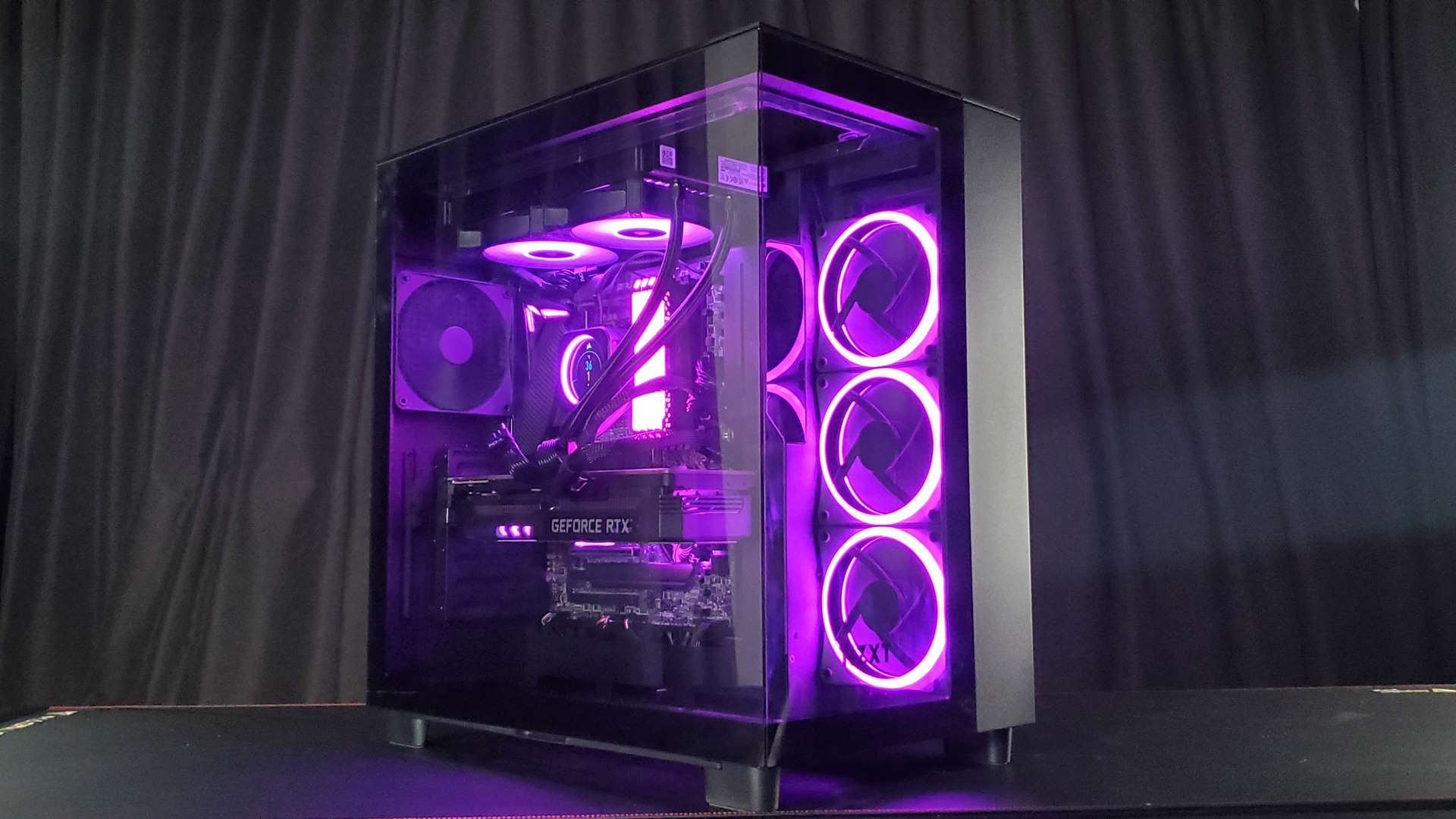
Our face: 😔
What happened: Hardware maker NZXT came under fire in December for its Flex PC rental service, which a Gamers Nexus exposé called a “predatory, evil rental computer scam.” Specific complaints included allegations that NZXT would sometimes swap out components in rented PCs with less powerful hardware, use seemingly false or misleading benchmarks, and lock rental customers into unfair contracts.
The outcome: NZXT defended its practices in response, but acknowledged that it “messed up” on some points. It committed to greater clarity on various points of the program and an end to “influencer-led” advertising, and also spent a good chunk of text laying out the “use case” for the Flex rental program, which NZXT said “allows for flexibility and lower commitment than owning or financing a PC.” The response did not calm the waters: A video of NZXT CEO Johnny Hou discussing the matter has received 331 likes on YouTube, and more than 6,400 dislikes.
A weird game about cats sparks AI backlash

Our face: 🐱
What happened: Catly, a weird game about cats, dropped a reveal trailer at the 2024 Game Awards. Rather than being greeting with the presumably-expected “awww, they’re so cute,” though, the trailer sparked immediate speculation (and some straight-up accusations) that it was made with generative AI. The game itself, from the very little that could be seen of it, struck many as little more than an NFT showcase. Those concerns were heightened by reports that Kevin Yeung, the co-founder of developer SuperAuthenti, is also co-founder of TenthPlanet, a studio that definitely is (or at least was) working on blockchain projects.
The outcome: SuperAuthenti has been oddly quiet about the whole thing, although it did eventually state that Catly does not use AI and has “zero blockchain technology.” Beyond that, we’ll have to wait and see: A post-announcement update to the Steam page provided a closer look at what the game is all about, but more details won’t be revealed until sometime in 2025.
Source link











Add comment